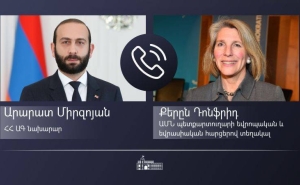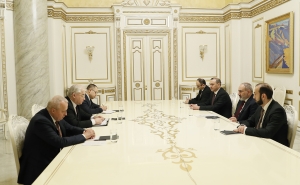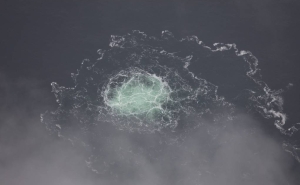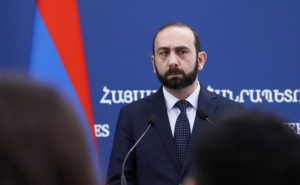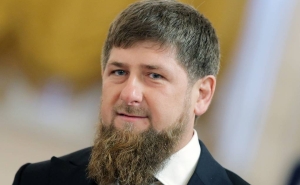The US to Deploy Heavy Weapons in the Eastern Europe: What Are the Challenges to Consider?
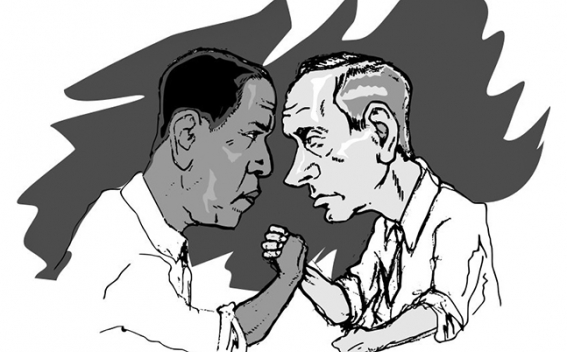
An article published in the New York Times this week became a topic of wide discussion in the international media. Citing to the official sources, the article states that the Pentagon intends to deploy battle tanks, infantry fighting vehicles and other heavy weapons for as many as 5,000 American troops in several Baltic and Eastern European countries in an act to protect US allies from Russia’s possible aggression. Although the Pentagon’s proposal still requires to be approved by Defense Secretary Ashton B. Carter and the White House, Russia has already reacted to the disseminated news on the proposal. On the occasion Russian Defense Ministry official General Yuri Yakubov noted: "If heavy U.S. military equipment, including tanks, artillery batteries and other equipment really does turn up in countries in eastern Europe and the Baltics, that will be the most aggressive step by the Pentagon and NATO since the Cold War, "Russia will have no option but to build up its forces and resources on the Western strategic front," Reuters reports.
Notwithstanding the fact that the proposal from the Pentagon received positive reaction of the most Baltic countries, which seem to be terrified after the development in Crimea, the US is to face certain challenges and will need to weight the existing circumstances thoroughly to take such a step.
First of all there are NATO member states, which continuously opposed to the deployment of heavy weapons in the Eastern European countries, such as Germany, France, Spain and Italy as they claim "to avoid militarizing stance of Putin" on Ukraine. In addition a recent opinion poll conducted by the Guardian showed that Western Europeans would not support military action against Russia if the Kremlin attacked an eastern European ally. According to the same source, the opposition was the strongest in Germany.
Second, by deploying the heavy weapons in the Eastern European countries, the US in sense is violating the key provisions of Russia-NATO Founding Act of 1997, according to which the alliance is not to permanently station substantial combat forces in several eastern member state countries. Besides, it will make Russia deploy weapons in the country’s Western Military District. In this sense it is not by chance that Yakubov in his speech pointed to the fact that Russia had completely pulled out of the Treaty on Conventional Forces in Europe (CFE Treaty), thus getting rid of any limits to expand its military presence in, for example, Kaliningrad or Belarus.
Third, it will give a new start to arm race between Russia and the West not seen since the end of the Cold War. In this sense it is not by chance that the president of Russia Vladimir Putin the other day declared that Russia will add more than 40 intercontinental ballistic missiles to its nuclear arsenal in 2015, BBC reports.
Thus these are the challenges that the White House is to consider before confirming the proposal from the Pentagon to avoid future tension in relation with Moscow.
Other materials on this subject
- Macron, Scholz and Draghi arrive in Kyiv for Historic Visit This is a message of European unity addressed to Ukrainian men and women, of support.
- EU Prolongs Sanctions against Russia for One Year On June 11, ambassadors of EU member states agreed to prolong restrictive measures against Russia on Crimea. The decision is formalized by a "written procedure" without discussion.
- Ukrainian President Zelensky Extends Ban on Russian Social Networks Sanctions were imposed on several TV channels and Internet companies, including 1C, ABBYY and their Ukrainian subsidiaries. In addition, Russia’s VKontakte and Odnoklassniki social networks, Mail.ru...
- Zelensky Calls Extra NSDC Meeting On Situation In Donbas President of Ukraine Volodymyr Zelensky has called a meeting of the National Security and Defense Council (NSDC) to decide on Ukraine’s further steps following the enemy attack on the positions of the...
- Next Normandy Summit to be Held in Four Months, Macron Says "We are confident that this work on restoring peace and trust is very important," he stressed. Macron noted the significance of the discussion that "has finally been held seriously in the last three years.".
-
 17:08
17:08The regular session of the Anti-corruption Policy Council takes place in Jermuk
-
 15:05
15:05The Prime Minister sends congratulatory messages to the supreme leader of Iran and the President of Iran
-
 11:11
11:11Armenia sends earthquake aid to Turkey
-
 10:43
10:43Commemoration of the Pontiff St. Sahak Partev
-
 09:16
09:16Some roads are closed and difficult to pass in Armenia
-
 19:55
19:55Phone conversation of the Foreign Minister of Armenia with the U.S. Assistant Secretary of State for European and Eurasian Affairs
-
 18:30
18:30Prime Minister Pashinyan and President Khachaturyan meet
-
 18:20
18:20Ararat Mirzoyan with Co-Chairman of the OSCE Minsk Group of France Brice Roquefeuil
-
 17:01
17:01Humans could land on Mars within 10 years, Musk predicts
-
 16:45
16:45France, US urge 'immediate' end to Nagorno Karabakh blockade
-
 16:01
16:01Blockaded Nagorno Karabakh launches fundraiser to support quake-hit Syria
-
 15:59
15:59Earthquake death toll in Turkey rises to 18,342
-
 15:43
15:43Ararat Mirzoyan Held a Telephone Conversation with Sergey Lavrov
-
 15:06
15:06French president rules out fighter jet supplies to Ukraine in near future
-
 14:47
14:475 Day Weather Forecast in Armenia
-
 14:44
14:44President Vahagn Khachaturyan wrote a note in the book of condolences opened in the Embassy of Syria in Armenia
-
 14:20
14:20Azerbaijan’s provocations impede establishment of peace and stability – Armenian FM tells Russian Co-Chair of OSCE MG
-
 12:57
12:57France representation to OSCE: Paris calls on Azerbaijan to restore freedom of movement through Lachin corridor
-
 11:40
11:40Command of Kosovo forces highly appreciated preparation of Armenian peacekeepers
-
 10:16
10:16The United States withdrew from sanctions against Syria for six months the provision of assistance after the earthquake
day
week
month
Humidity: %
Wind: km/h


